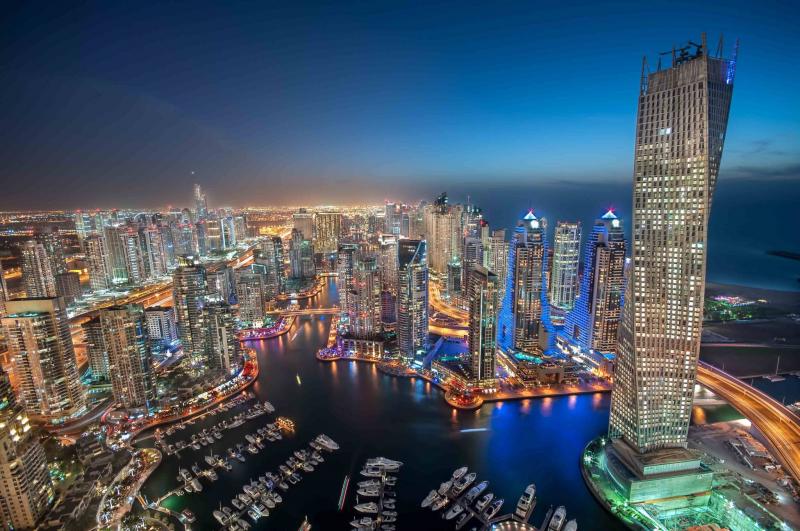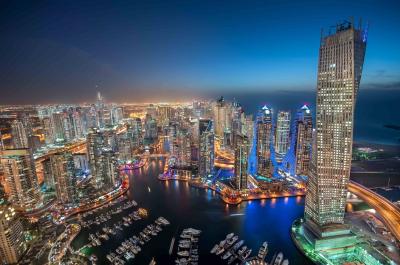Dubai has strengthened its position as a safe haven in the Middle East, with the emirate's economy flourishing in tourism, construction, and investment. Zan Goshinski, CEO of operations at "Property Monitor" real estate consultancy, stated, "Dubai is in a very unique position. We are the sole beneficiaries of the crisis in the region."
Dubai has a long history of indirectly benefiting from crises in the area. When the extremely wealthy become concerned about disturbances, the city offers stability, low taxes, and a friendly visa system. The current turmoil has put Dubai in a position to benefit once again, as demand in Dubai's real estate market rises, leading luxury properties to reach record valuations.
"Emaar Properties" announced that its development business achieved sales of $8.1 billion during the first half of the year, an increase from $5.2 billion during the same period last year. Throughout the city, luxury villa valuations in Dubai reached a new record, rising by approximately 38% in the second quarter of 2024 compared to the previous year, according to "ValuStrat" real estate consultancy. The average villa price surpassed $2.7 million for the first time in a decade.
Following this, luxury apartment prices have also risen significantly, surpassing the peaks seen in Palm Jumeirah, a man-made archipelago overlooking the Gulf, from 2014. Dubai International Airport, the busiest in the world for international travel, recorded a record 44.9 million passengers in the first half of this year. Dubai plans to shift operations to a new airport costing approximately $35 billion over the next decade.
In the first half of 2024, around 9.3 million tourists visited Dubai, exceeding pre-pandemic levels, according to research from Emirates NBD, which is owned by the Dubai government. However, some analysts question how long the record rise can continue. Some have warned that an oversupply of housing could eventually slow the market if it does not keep pace with demand.
Tatiana Liskova, an analyst at "S&P Global," told the Associated Press, "Between 2025 and 2026, there will be a massive new supply of new units that began construction in 2021. By that time, we essentially believe that the new supply will not be fully absorbed by the market, which could lead to a cyclical slowdown."




